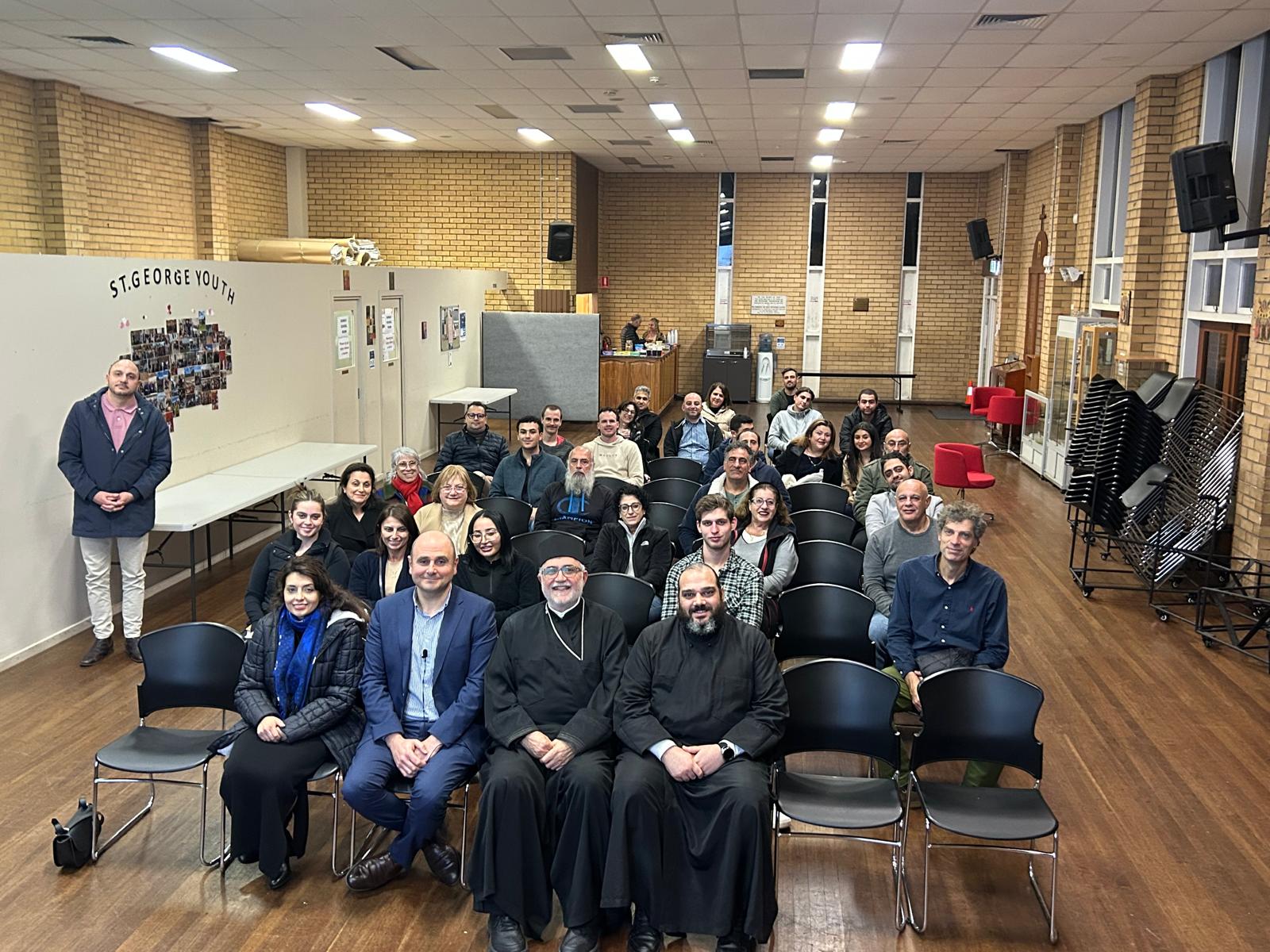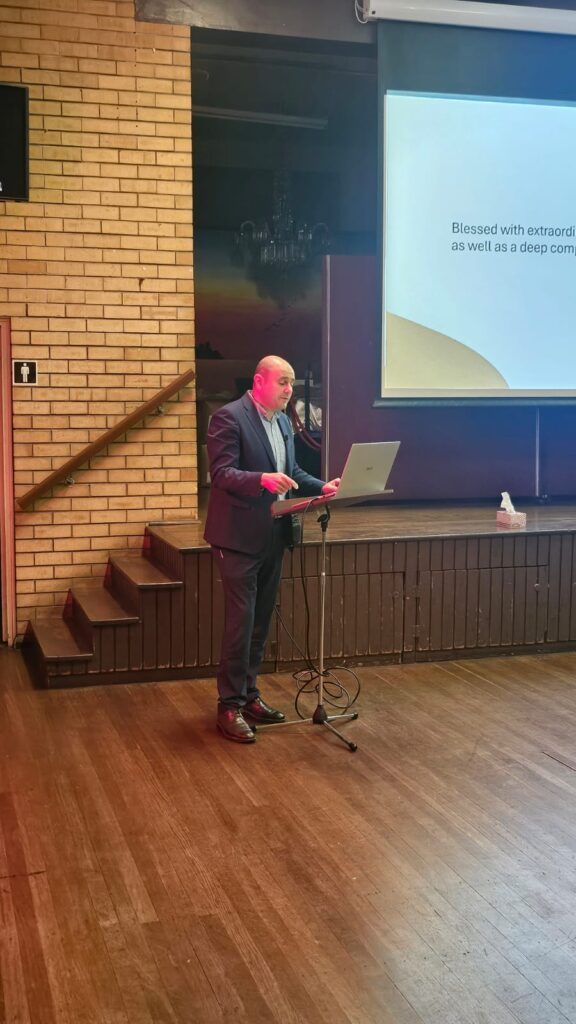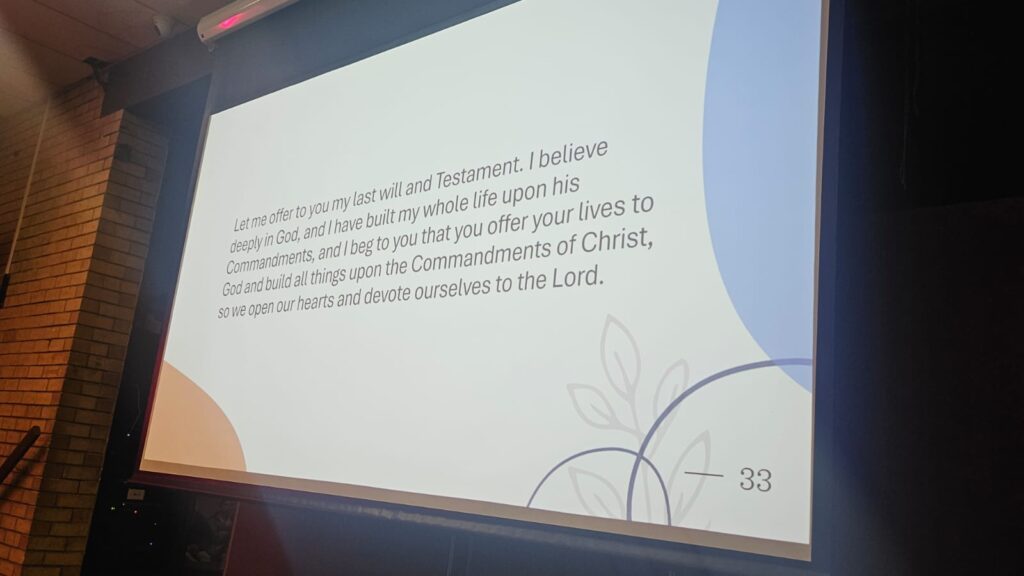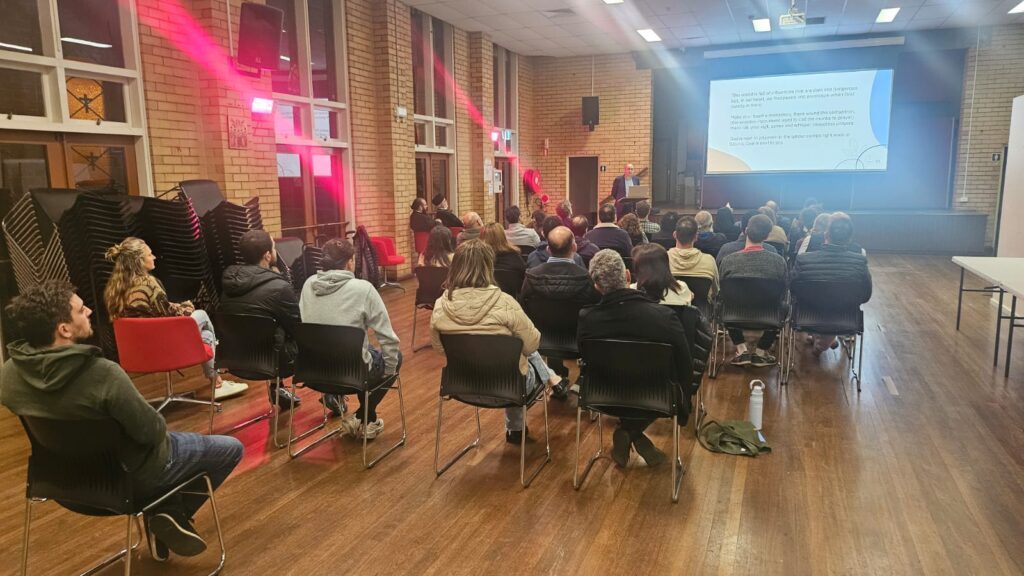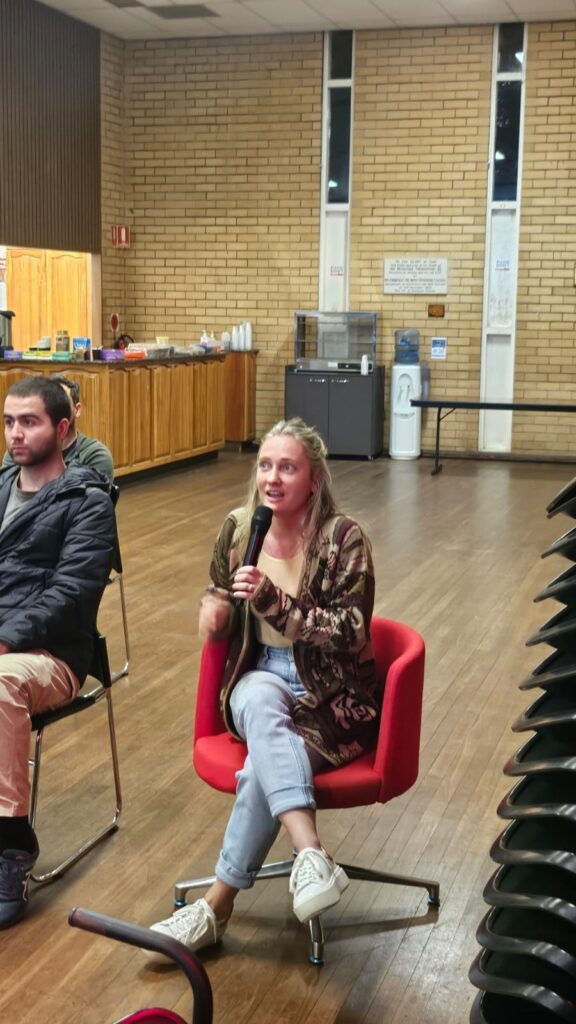St Luke the Surgeon
On Tuesday the 27th of May, Dr Andrew Jabbour presented an enlightening talk on the modern-day saint, Luke the Surgeon. St Luke was a renowned surgeon and bishop who lived through early to mid-20th century Soviet Russia, where hostility and persecution towards Christianity was constant. However, St Luke’s constant engagement with prayer and compassion towards others allowed him to provide the love that Christ calls us to, despite the pressures of a hostile culture.
At 26 years old, St Luke graduated from the University of Kiev in 1903, majoring in surgery with additional training in ophthalmology. This choice of ophthalmology was drawn out of compassion for blind beggars he had seen on the street. Somewhat poignantly, St Luke himself became blind later in his life.
In 1904, St Luke volunteered as a physician in the Russia-Japan war, meeting his wife with whom they had 4 children. However, in 1917, less than 15 years later, his wife passed away from Tuberculosis, leaving St Luke a widower with 4 children. Fortunately, however, a nurse who was a friend of St Luke’s agreed to help raise his children.
Despite these many challenges, St Luke made great efforts to embed Christian spirituality within his life. St Luke wore his priestly garments while in surgery, he used iodine to make the sign of the cross on his patients prior to surgery, and constantly sought out a place to pray each day, no matter where. These actions demonstrate how St Luke fully integrated his spiritual and work life, creating a Christian identity and culture in the midst of a culture that sought to isolate Christians. These actions, however, did not go unnoticed or unopposed. Famously, the authorities removed St Luke’s icon of Christ and the Theotokos from his surgical room. In complete opposition to this, St Luke refused to perform surgeries until the authorities eventually allowed him to display icons again.
St Luke was ordained a priest in 1921, and went on to replace the Bishop of Tashkent in 1923, taking on the name Luke. St Luke was arrested in the same year, spending 11 years of hardship in exile. Once returned from exile he published his seminal medical work Treaties on Purulent Infection, which was enthusiastically received and continues to be a significant medical text to this day.
However, St Luke was arrested once again in 1937. He was held for 2 years under arrest, and after refusing to sign false testimonies against other individuals, he was exiled to Siberia in 1939. St Luke continued persevering through this trial, teaching at a medical school, performing surgery, as well as performing his clerical responsibilities, courageously tending to the spiritual and physical needs of the local citizens. In WW2, St Luke volunteered to be a military surgeon, requesting to be sent anywhere he was required. As head physician at a military hospital, he was loved by many, however, was constantly under surveillance by authorities and scorned by colleagues as he was a man of faith. Addressing how he had navigated the multitude of trials and pressures presented to him St Luke said “I have come to love the trial that strangely purifies the soul”
Although his sight gradually declined in his later life, St Luke was able to, as his last liturgical act, baptise his great-granddaughter in 1961. Soon after, St Luke passed away on the 11th of June 1961. The authorities sought to supress his funeral service, banning singing and limiting the service to 3 minutes, however these attempts utterly failed. The boulevard surrounding the church was soon crowded with people from all backgrounds, singing in one voice Holy God, Holy Mighty, Holy Immortal for 3 hours.
Many miracles are attributed to St Luke, both during and after his passing. These include unexplained healing miracles after prayers to St Luke, miracles during his imprisonment, including performing surgeries without anaesthesia under prison camp conditions. There have been numerous reports of apparitions of St Luke, particularly toward people in medical crisis, and many doctors have testified to his help in times of surgery. Further, St Luke’s relics remain incorrupt several decades after his death.
Some quotes from St Luke
“May the sweetest Jesus be always in your thoughts, may He be a harbour to which you return again and again, furthermore, do not cease to call upon the Panagia to help whenever you have need, and more, continue your path with courage, with much courage, let your heart rejoice in the Lord and He will grant it all nourishment”
“The world is full of influences that are dark and dangerous but, in our heart, we find peace and protection when God dwells in there”
“Make your heart a monastery, there sound the sematron, (the wooden instrument used to call the monks to prayer) there call your vigil, sense and whisper ceaseless prayers.”
“God is next to you even in the labour camps right even in Siberia, God is next to you.”

